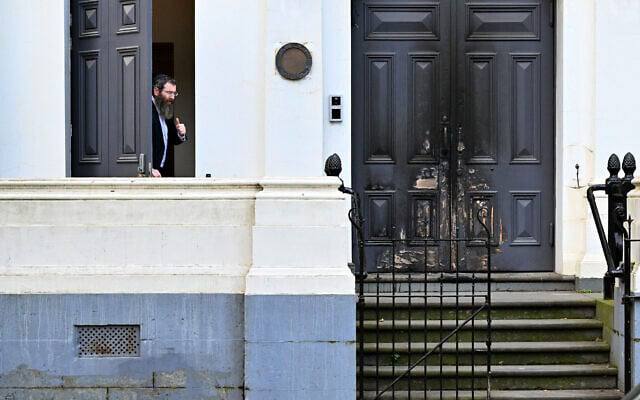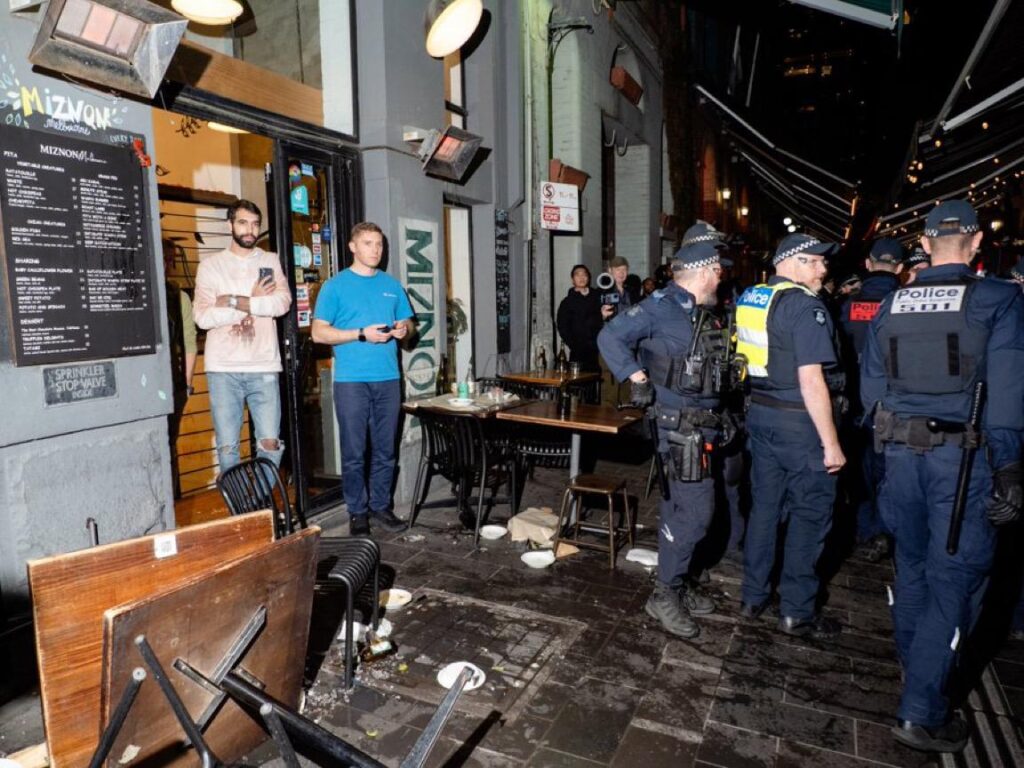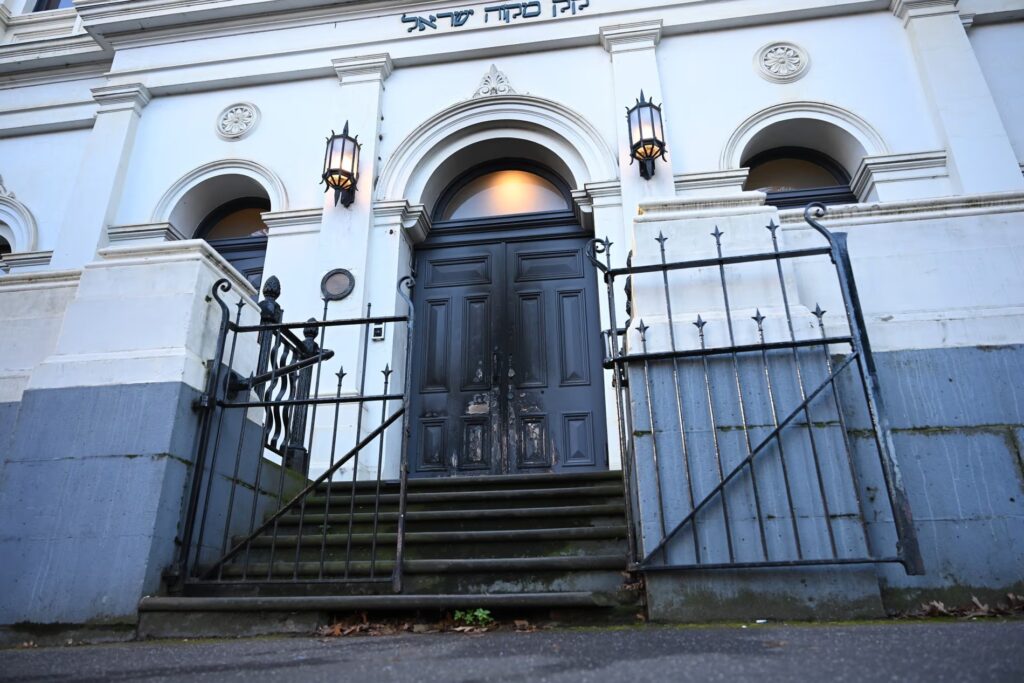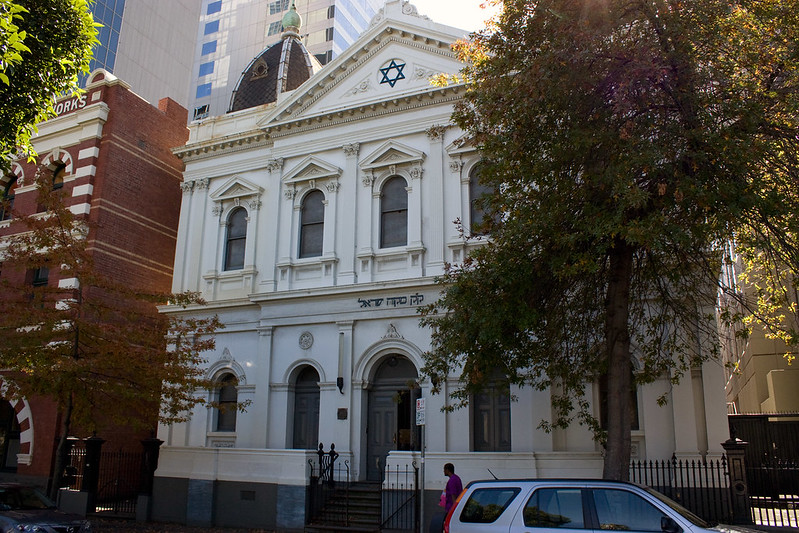UPDATES
Gaza: How we got here and how it might end
November 21, 2012
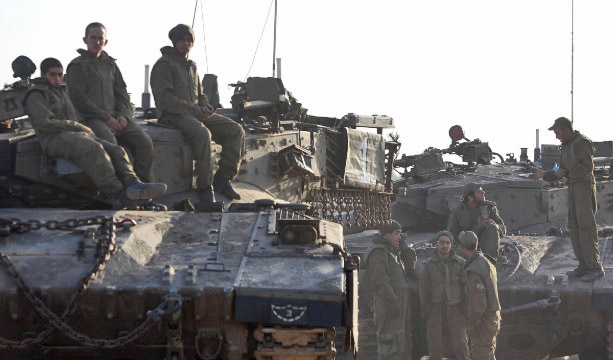
Update from AIJAC
November 21, 2012
Number 11/12 #05
This Update offers more top-flight analysis of how the Gaza conflict got to this point – with more than 1150 rocket hits on Israel since Wednesday (on top of the 150 in the few days before that) and over 1400 Israeli strikes on terror targets in Gaza – and what the end of the conflict might look like. (Report now say a deal on a ceasefire being negotiated in Cairo might be close to completion, with US Secretary of State Hillary Clinton now in the region to try to assist in a ceasefire deal.) Good constant updates on what is going on militarily are being provided by the IDF’s website.
First up is veteran American Middle East mediator Ambassador Dennis Ross, who makes it clear what led to the current violence is a Hamas miscalculation that, with their parent organisation, the Muslim Brotherhood, running Egypt, and Israel heading for elections, they could define a “new normal” which forbade Israeli patrols along the Gaza border. However, his main focus is on the complex role that Egypt is playing and the major test this will be for the Morsi Government. He also lays out some of the major difficulties in achieving a ceasefire, and what Washington and other international players can do to encourage Egypt to play a relatively positive role. For his argument in full, CLICK HERE. Another excellent explanation of the miscalculation behind Hamas’ recent escalation comes from Israel analyst Jonathan Spyer. Yet another comes from Avi Issacharoff of Haaretz, writing in the New Yorker. Meanwhile, analyst Aymenn Jawad Al-Tamimi argues that Hamas’ actions can be explained largely by internal politics within the Islamist terror group.
Next up is the always very well-informed Israel journalistic expert on Arab affairs Ehud Yaari, exploring in more detail the criteria for a deal to end the current round of conflict. He argues the sorts of ceasefires which have been negotiated between Israel and Hamas in the past – simply calm for calm – have generally not proven sustainable or long-lived and something different will be required this time. He says that what is needed is an agreement between Israel and the new Egyptian Government, with US support, to curb Hamas violence, tackle arms smuggling, and deal with the lawlessness in Sinai, and makes a case that such a deal might be a realistic possibility, if not easy to achieve. For this argument in full, CLICK HERE.
Finally, this update features an eloquent plea for understanding of the situation vis-a-vis Gaza and Israel from an Israeli blogger named Boaz Kantor. Kantor’s plea takes the form of an open letter to his Palestinian counter-part on the other side of the Gaza border, whom he calls Khalil. He makes an elegant case, based on the plight of Khalil’s 12-year-old daughter (the same age as Kantor’s own daughter), who might be killed in an Israeli airstrike, to understand what Hamas has done to make such an outcome possible for Khalil and his family. For this more literary attempt to explain the reality of why this tragic conflict is afflicting both Palestinians and Israelis, CLICK HERE.
Readers may also be interested in:
- IDF videos showing strikes aborted or delayed to minimise risks to civilians – plus another showing a missile taken our right next to a mosque without damaging the mosque itself. More on Israeli efforts to minimise civilian casualties in an article from Time magazine.
- Eric Trager says that the Egyptian government’s encouragement of Egyptians to visit Gaza as human shields is a bad sign of their willingness to play a positive role. Lee Smith sees Egyptian President Morsi as torn and conflicted. But in one good sign, Morsi apparently actually said the word “Israel” in a press conference this week, something he has generally avoided doing in the past.
- Barry Rubin and Daniel Pipes each discuss why Hamas thinks it can “win” in the current confrontation, even though militarily, it must know it will lose.
- Isi Leibler writes that Israel’s responses to Hamas rockets have to be “disproportionate” – something he notes is fully legal – to successfully deter. Former Israeli General Shlomo Brom also has more on deterrence as the goal of the current operation.
- More on the legality of Israeli operations from Harvard law Professor Alan Dershowitz and American legal commentator David French plus an examination of the legality of Israeli attacks on Hamas police stations and media buildings comes from Israeli commentator
- A report highlighting that at least 100 rockets, perhaps 10% of the total, fired from within Gaza have landed back into Gaza. While the casualties caused by these are unclear, it is know that in at least one prominent case Palestinians were killed by one of these “friendly fire” rocket strikes in Gaza.
- 27 things to consider about Gaza from Shmuel Rosner, plus eight unanswered questions about Gaza from Jonathan Schanzer. And finally, 11 reasons why the current campaign is not like Cast Lead in 2008-2009.
- Useful background on Hamas from the Council on Foreign Relations. Plus, the New York Times had a good report on how the Hamas militias and rocket teams operate.
- Times of Israel editor David Horovitz on what the Hamas rocket attacks on Jerusalem tell us about their supposed religious sensibilities. Plus, Israeli Arab journalist Khaled Abu Toameh discusses the spectacle of Palestinians cheering on the Hamas rocket attacks on Israeli civilian towns.
- Israeli hospitals continue to treat Gazans despite the current war.
- A good overall profile on Israel’s Iron Dome rocket defence system. Plus, a video clip on the most threatening of Hamas’ rockets, the Iranian-made Fajr-5.
- US President Obama on Israel’s right to self-defence – plus a comment on Obama’s generally supportive stance to Israel so far from Israeli journalist Hilary Leila Krieger.
- A documentary film-maker who lived in Sderot reports on what it was like there. Another plea from a victim of the rocket barrages is here.
- A look inside the torture camps of Sinai, where Bedouin kidnappers hold African refugees attempting to reach Israel for ransom.
- Some examples from the many stories and comments now appearing at AIJAC’s daily “Fresh AIR” blog:
- Sharyn Mittelman on “Propaganda, lies and the Gaza conflict”.
- Colin Rubenstein explains the situation on “ABC-24” TV.
The Fuel for the Flames
Dennis Ross
New York Daily News, November 18, 2012
How forces inside Israel, Gaza, and Egypt are feeding the latest deadly conflagration, and what Washington can do about it.
As I sit here in Jerusalem and watch not just a war of words but also exchanges of rockets and air strikes between Israel and Hamas, it feels as if we are at one of those hinge points in the Middle East. The Arab Awakening has initiated changes without transformation. It has produced new governments, principally Islamist-led, but no certainty about how the region will ultimately evolve.
Will these new governments be driven by their ideological beliefs and aspirations that are inherently anti-western and anti-Israel? Or will they rationalize that long-term Islamist aims can and must wait in order for them to act in a way that will be necessary to improve their economies, lest they lose the legitimacy they may currently have with their publics — publics that now have an expectation that their needs and hopes should count for something?
Nowhere are these questions more likely to be put to the test than in Egypt today, particularly with the events in Gaza. Hamas is quite literally an outgrowth of the Muslim Brotherhood in Egypt. They are not just sister parties, they are organically linked.
Emotionally, ideologically and even politically, given the mood on the Egyptian street as pictures of Palestinian casualties in Gaza provoke anger, President Mohamed Morsi instinctively supports Hamas.
And, so, without any recognition that Israeli civilians are targeted by Hamas rockets from a territory Israel left completely in 2005, Morsi has condemned the Israeli “aggression” in Gaza and recalled Egypt’s ambassador to Israel. He has sent his Prime Minister, Hesham Kandil, to Gaza to express solidarity and strong support.
But he may well have conveyed something else in private, namely: Find a way to bring this to an end; we are not going to war with Israel over you, and if you provoke the Israelis with continuing rocket attacks on Tel Aviv or Jerusalem, you are on your own.
Why might that be his message? Because the last thing Morsi needs is a conflict that drags on and actually leads to Israel feeling it has no choice but to send ground troops into Gaza and root out Hamas in a bloody, prolonged conflict.
Egypt’s public would probably demand that he break the peace treaty under such circumstances. But the treaty is not a favor that Egypt does for Israel; it has saved countless Egyptian lives. Leaving aside over $60 billion in U.S. assistance that Egypt received over the years, monies the Muslim Brotherhood may erroneously claim went to Mubarak and not the Egyptian people, it is the treaty that remains the linchpin for making it possible for Egypt to receive essential assistance, loans and investment that it needs to confront its collapsing economy.
Who is going invest in Egypt if there is no peace treaty and in its place is the prospect of conflict and confrontation? Morsi understands that, and that is why, with all his tough rhetoric toward Israel, he is not saying he will revoke the treaty.
But it is one thing for him to recognize that reality, and it may be another to sustain this posture under pressure. Hamas, after all, has acted to provoke Israel, and Israel has decided to draw a line. Realities on the ground may well escalate, and Egypt’s new leaders are being tested — and the U.S., Europeans and even the Saudis and others in the Gulf will need to let Morsi know that he cannot let Hamas dictate Egypt’s future.
Let’s be clear. Hamas triggered this latest eruption of conflict. In the last two weeks, it loaded a tunnel with a massive amount of explosives and blew it up along the fence with Israel seeking to kill the Israel forces in the vicinity. It fired an anti-tank rocket at an Israeli jeep wounding four Israeli soldiers again on the Israeli side of border.
This followed a pattern of increasing rocket fire from Gaza. Though Islamic Jihad, the Popular Resistance Committee and Salafis may have been responsible for most of the rocket fire coming out of Gaza during the course of this year, Hamas in the last weeks was doing far less to prevent it, and suddenly it began to assume responsibility for the attacks.
While it is probably true that Hamas leaders felt pressure to show they had not given up resistance against Israel — their only real strategy and claim to rule — there is more to the shift in Hamas’ behavior. With a new Egypt led by the Muslim Brotherhood, Hamas leaders felt they could do more to carry out attacks against Israel and demonstrate their “resistance” credentials.
They doubted that they would face much pressure from Egypt, instead believing that they could put pressure on Morsi and his Muslim Brotherhood colleagues to do more to break relations with Israel.
Moreover, with Israel facing elections and preoccupied with Iran, they may well have calculated that Israel would not want to escalate and that Hamas could, thus, create a new normal and Israel would adjust to it.
But Hamas miscalculated and was surprised by the Israeli reaction. The best proof of that is Israel was able to track and kill the head of the Hamas military wing, Ahmed Jaberi, who would have gone underground quickly if he thought Israel was about to strike.
For its part, Israel was not about to let Hamas define a new normal that would prevent Israeli forces from patrolling along the security fence separating Israel from Gaza — nor was it about to allow Hamas to fire or permit groups like the Iranian-armed Islamic Jihad to shoot rockets from Gaza and force up to a million Israelis in southern Israel to move in and out of shelters.
So Israel acted to re-establish its deterrence and not let it erode. In killing Jaberi, Israel eliminated a man not simply responsible for the deaths of dozens of Israelis, but the leader of the most militant part of Hamas who was also instrumental in planning all attacks against Israel.
But the Israeli attacks have also been guided by a strategic rationale to set back Hamas’ ability to launch its longer-range rockets against Israel. So Israel has been striking Hamas’ weapons infrastructure and the sites of the Fajr 5 rockets capable of hitting Tel Aviv and even Jerusalem.
To this point, Israel has been targeting these capabilities, not Hamas fighters. This is the best indication that Israel would like to keep this conflict limited with the aim of re-establishing its deterrence, destroying a significant part of Hamas’ long-range arsenal, and restoring calm.
That, however, could change. Israel’s call up of reservists is designed to put more pressure on Hamas to stop the conflict. But should Hamas keep firing rockets at Tel Aviv and Jerusalem, it will cross an Israeli red-line. Bringing life to a standstill in Israel’s heartland will not be tolerated. The IDF could launch ground forces into Gaza, and Israel’s war aims could expand — and that could happen sooner rather than later.
That is probably the last thing that Hamas’ leaders want. Their hold on power could be shaken. The irony is that Israel and Hamas probably both want to keep this conflict limited. Israel does not need to get caught up in a long bloody conflict in Gaza, with high casualties and growing international pressure on it to stop. Hamas leaders have no desire to lose their grip on power. Logic would argue for the conflict to be brought to an end with some understandings that would prevent it from resuming soon.
But logic does not always work in the Middle East. Neither side wants to appear that they needed the ceasefire. Both will want to claim victory, and the longer it takes to broker a ceasefire, the greater the danger of this spinning out of control, particularly if Hamas keeps firing at Israel’s largest cities.
For our part, we can put pressure on Egypt and mobilize others, like the European Union and even the Saudis, who have no interest in Hamas shifting the focus in the Middle East away from Syria, to do the same. Egypt has many pressing internal needs, and Hamas is the junior partner in their relationship.
No doubt, Hamas will ask the Egyptians to open a free trade area with Gaza, and get assurances from Israel that may include ending its practice of blocking what can enter Gaza from the sea. Israel, in turn, will seek assurances from Egypt not only about Hamas stopping all fire out of Gaza but also about Egypt preventing the smuggling of arms through the Sinai into Gaza.
Is Egypt up to or even willing to play this role? Much will depend on what matters most to Egypt’s new leaders: their ideology or the country’s economic needs. How they resolve this question may affect not only when this conflict ends — and on what terms — but also tell us much about the direction of Egypt during this time of transition in the Middle East.
Dennis Ross is counselor at The Washington Institute.
Back to Top
————————————————————————
How to End the War in Gaza
What an Egypt-Brokered Cease-Fire Should Look Like
Foreign Affairs, November 17, 2012
Summary: With Israel and Hamas once again locked in a shooting war, it’s time to think about what a more sustainable ceasefire might look like.
Israel and Hamas are once again locked in a shooting war. Each day, hundreds of missiles fly toward Israeli cities and villages. Meanwhile, the Israeli Air Force has been systematically pounding the Gaza Strip, carrying out no less than 1000 strikes on Hamas military targets in the last several days. As indirect negotiations over a cease-fire progress at this moment, with active U.S. involvement, it is time to chart a course to end this round of hostilities.
Israel has set fairly modest goals for its campaign, dubbed Operation Pillar of Defense. It does not seek to topple the Hamas regime in Gaza, as it has sought in the past, nor does it want to bring about the total collapse of Hamas’ military wing. As statements from senior Israeli officials indicate, the objective is a long-term cease-fire along the Israel-Gaza border. Hamas, for its part, has one objective: to stay on its feet. It is trying to inflict maximum damage and casualties in order to prove that Israel’s military superiority alone will not force it to back down. With the right kind of a no-victors formula, sponsored by the United States and other international players, a deal can be reached to ensure a long-term calm.
Previous conflicts between Israel and Hamas, including the 2009 war, have been resolved, with Egyptian faciliation, through a simple formula: each side commits to refrain from opening fire as long as its adversary does the same. But these calm periods — or tahdia, as they are called in Arabic — have historically not lasted very long. Hamas has increasingly allowed other heavily armed terrorist groups in Gaza, such as the Palestinian Islamic Jihad, to launch attacks on Israel. And in the past few months, despite Egyptian warnings, Hamas has targeted Israeli soldiers and military outposts along the border, too.
This time, ending the conflict and restoring stability will require a different type of arrangement. The cease-fire agreement should involve other parties and contain additional checks on violence. It will have the best chance of lasting if it is primarily based on an Israeli-Egyptian agreement, supported by the United States and, possibly, by the European Union. It will be up to Hamas to adhere to the terms.
Egypt’s Muslim Brotherhood-led government has showered Hamas with statements of solidarity, and its prime minister made an unprecedented visit to Gaza on the second day of the Israeli operation. But what Cairo ultimately wants is a speedy cease-fire. Despite its support for Hamas, the new Egyptian regime is reluctant to grant the group a defense guarantee or to open the Rafah crossing between Gaza and Egypt. Egyptian President Mohamed Morsi underscored this on Friday, saying, “We don’t want a war now.”
Egypt knows well that ongoing support for Hamas’ shelling of Israeli civilians would jeopardize the billions of dollars in international aid that its bankrupt treasury depends on — $450 million annually from the United States, $4.3 billion annually from the IMF, and $6.3 billion annually from the EU’s development bank. This explains why, despite Cairo’s venomous anti-Israeli rhetoric over the past several days, Egypt did not take any serious actions beyond recalling its newly accredited ambassador from Tel Aviv. Furthermore, the Egyptian military and intelligence services are hesitant to provoke a confrontation with Israel.
Given Egypt’s adversity to conflict, Egypt and Israel should strive to reach an understanding about Gaza. In doing so, they would reaffirm the 1979 Egyptian-Israeli peace treaty for the post-Arab Spring era. Such an Egyptian-Israeli understanding could include several components.
First, Egypt should broker the Israel-Hamas cease-fire at the highest political levels, rather than through behind-the-scenes talks organized by its General Intelligence Directorate. That in itself would constitute a departure from the Morsi administration’s policy of putting a pause on normalization with Israel and preventing any contact with the country other than for military or intelligence cooperation. Egypt faces a choice: launching a high-level political dialogue with the Israel to obtain the cease-fire that it desires, or seeing the continuation of violence in Gaza. An Egyptian refusal to lead the political process should raise red flags in Washington.
Second, since most of the weapons in Gaza were trafficked through Egyptian territory, Cairo should agree to help prevent the reconstruction of Hamas’ arsenal. For years now, Egypt has been turning a blind eye to smuggling in the Sinai Peninsula and tolerating the operation of 1200 tunnels that run underneath the Egypt-Gaza frontier. Cairo could try to shut down the tunnels and intercept arms shipments that come through the Suez Canal. Egypt, which is already domestically unstable, has every reason to prevent renewed violence by counteracting the remilitarization of Hamas and its allies.
Any agreement should also address the growing lawlessness in Egypt’s Sinai Peninsula, where attacks against Israel and even sometimes against Egyptian security personnel have become regular occurrences. Egypt’s Operation Eagle, aimed at cracking down on insurgents there, has so far failed to dismantle the widespread terrorist infrastructure in the area. (Hamas even twice took the liberty of testing its long-range Fajr-5 missiles by firing them into the Sinai desert.) Since a number of Salafi jihadist organizations have branches in both Gaza and Sinai, for all practical purposes the peninsula is an extension of the Gaza front.
Egypt and Israel need to ensure that when the cease-fire takes hold in Gaza, terror operations do not simply pick up and move south to Sinai. Despite restrictions on Egyptian military deployments in the area, which stem from the 1979 Egyptian-Israeli peace treaty, Israel and Egypt can work through the decade-old Agreed Activities Mechanism to allow Egyptian units to take up positions in the eastern Sinai. Israel has already consented to let Egypt introduce a mechanized brigade and commando battalions in the area. Israel could also approve the deployment of whatever Egyptian troops are necessary — save tanks and antitank weapons — to uproot the terrorist safe havens. Egypt won’t just be doing Israel’s dirty work; Cairo knows that these organizations might eventually target the Suez Canal as well.
A cease-fire agreement could also address the sensitive and important issue of border crossings. Egypt might get Israeli consent to open the Rafah terminal on its border with Gaza, not only for passenger traffic but also for trade. This could mean that Gaza would get its fuel and other commodities from Egypt, while Israel would continue to supply electricity. Egyptian ports could begin to handle the flow of goods in and out of Gaza, and Israel would gradually phase out the commercial activities that pass through the six terminals it now operates into Gaza. The move would signal the completion of Israel’s 2005 disengagement from the Gaza Strip, slowly handing over responsibility for the area’s economic needs to the Egyptian government. Egypt, which already perceives itself as a patron of Hamas, would see this situation favorably because it would grant Cairo more influence over the group. And Hamas is already pleading for this type of arrangement, seeking to end its economic dependence on Israeli goodwill.
Given its leverage over Egypt, Washington has a role to play in bringing about such a comprehensive cease-fire — and in keeping it in place. The Obama administration should inform Morsi that, in return for the huge financial support Egypt gets from the United States, it must start ensuring stability in the region, create a dialogue with Israel that is not restricted to security personnel, prevent Egyptian territory from becoming a safe haven for weapons smugglers, and convince Hamas militants to stop lobbing missiles into Israeli towns and villages.
Reaching such a deal in the depths of a conflict will not be easy. But if the aim is anything more than a temporary break from fighting, it’s a deal worth striving for.
————————————————————————
An open letter to Khalil from Gaza
Boaz Kantor
Times of Israel “Blog”, November 18, 2012, 12:26 am
Do you know how alike we are, you and I? We’re both 30 years old; we both have 7-year-old daughters. We’ll both go to sleep tonight with the women we love, not before tucking our daughters in under down comforters, because it’s starting to get chilly.
Both of us will kiss our daughters on the forehead, go to bed and hug our wives, you in Gaza and I in Tel Aviv.
Before we fall asleep, we’ll both think of the next week at work, and the onerous responsibility of providing for our families, feeding our children, and, more importantly, making sure our wives know we’re real men, right, Khalil? 😉
We’ll both probably think about sex and once again fall asleep only thinking about it.
We’re utterly alike, Khalil, but there is something different.
Your daughter will die tonight.
You won’t find out about it in the morning. You’ll wake up in the middle of the night to a deafening explosion. Your whole house will tremble. Parts of the ceiling will fall on you. You’ll run to your daughter’s bedroom, and find the northern wall gone, your daughter lying on the broken floor, a charred husk.
But don’t worry, Khalil my man, she wasn’t burned alive. The shock wave killed her instantly, before she caught fire. Does that make it any easier for you? No?
Afterward, a guy will show up and introduce himself as Jamil, and he’ll start photographing her.
***
Now, before you get angry at the Zionist pigs who murdered your child, let’s talk about Imad, your neighbor.
You remember that he came to ask you for a loan a year ago? Yeah, I know you’d have given him the money if you had it. But don’t worry, he managed. Someone offered him 2,000 shekels a month, to rent one of the rooms in his house. So last year, without your knowledge, one room in Imad’s apartment was filled with Kassam rockets.
You know, those two-meter-long tubes containing about 10 kilograms of explosives?
So, in this room were 50 of these rockets. And this room, Khalil, shared a wall with your daughter’s bedroom. That means that every night, she laid her head on a pillow next to half a ton of explosives. How did you sleep quietly at night? Imad didn’t tell you?
But wait, don’t get upset at Imad. He’s experiencing financial difficulties, and all he can think about is providing food for his children. He was desperate. Jamil, the guy who pays the rent, convinced him that the room was just a warehouse, and no one would use the rockets. So forget Imad. Let’s talk about the rockets for a second, and understand why they’re bad.
***
What are rockets, Khalil? A rocket is like a bullet. Wherever you aim it, that’s where it’ll hit. Only, unlike a rifle, it has an engine that burns all the way and extends its range. The Kassam, for example, can go for about 20 kilometers.
How do you aim a gun at a target 20 kilometers away? You can’t. You hit approximately. And to make sure you hit your target, you fire 10 rockets together. We call it a “volley.” Rockets are used when you don’t care what you hit. Fire a bunch toward a city, and hope that something will hit a kindergarten. This is known as “terrorism.” And Israelis don’t like terrorism.
Call us crazy, but we want to keep our civilians safe.
So we spend millions of dollars on missiles, which are kind of like rockets, only they’re accurate, and they allow us to hit the warehouses full of rockets and launchers. We could fire rockets and shells in the general direction of those targets, but then we’d risk hitting many of your civilians. And we don’t want that. So we fire very costly and very accurate missiles at your rocket warehouses. And unfortunately, sometimes little girls sleep with their heads against those warehouses.
But wait, before you get angry at the missiles the Zionist pigs used to kill your daughter, let’s talk for a moment about Jamil.
***
Jamil is a Hamas activist. His role is to locate “warehouses” such as Imad’s, and see to it that rockets are stored in them. That’s it. We call it a “logistics officer,” but that’s a bit different. Jamil received some special instructions: First, that warehouses mustn’t be close to one another. Second, that they be in residential neighborhoods. Next to kindergartens. Next to hospitals and the homes of the elderly.
Adjacent to your daughter’s wall.
And you know why? Because Jamil doesn’t really care if your daughter dies. In fact, he’ll be the first on the scene with his iPhone to film her burnt body and upload it to YouTube. As they did on the first day of Operation Pillar of Defense.
Now you can get angry. Yes, at Jamil.
***
But Khalil, my friend, it’s not enough to be angry at Jamil. You need to get angry at Hamas. It’s your sovereign government, and it decided on this strategy. Hamas invests most of its resources on militarization. In warehouses next to your house. In rocket-launchers next to hospitals. And it’s doing all it can so that civilians will die. Yours, as well as ours. Hamas must be removed.
But how does one get angry at Hamas? Think Internet. Think friends. Think demonstrations. Think dissent. Think criticism. Think organization. Think a blog. Think interviews with the media. Think that Hamas must fall and that you deserve a government that sees you, your job, your future — and your daughter — as top priorities.
Think of your daughter. Think peace.
I assure you that when you stop aiming weapons at us and instead extend to us a hand of cooperation – that’ll be a morning when your daughter wakes up to a day that will build her future.
And it starts with you, Khalil.
Good night.
___
This post originally appeared in Hebrew as a Facebook statue update. Translation by Ethan Shalev and Gal Barkan.
Tags: Israel


